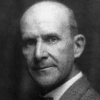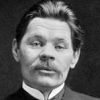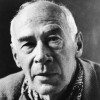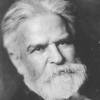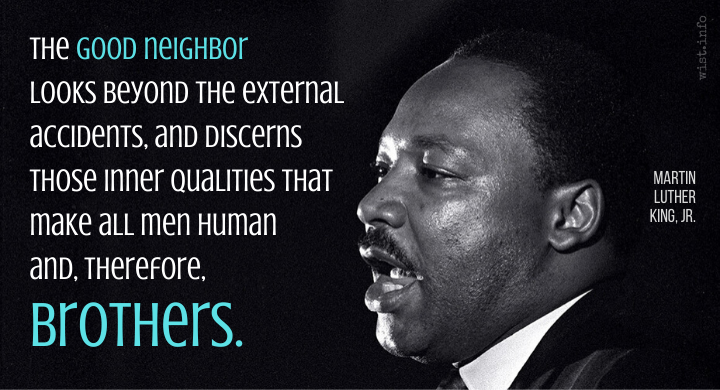I luv mi phailings. It iz theze that make me pheel that i have that tutch ov natur in me that makes me brother tew every man living.
[I love my failings. It is these that make me feel that I have that touch of nature in me that makes me brother to every man living.]
Josh Billings (1818-1885) American humorist, aphorist [pseud. of Henry Wheeler Shaw]
Everybody’s Friend, Or; Josh Billing’s Encyclopedia and Proverbial Philosophy of Wit and Humor, ch. 131 “Affurisms: Plum Pits (1)” (1874)
(Source)
Quotations about:
brotherhood
Note not all quotations have been tagged, so Search may find additional quotes on this topic.
The world is my country, all mankind are my brethren, and to do good is my religion.
Thomas Paine (1737-1809) American political philosopher and writer
(Attributed)
This is widely attributed to Paine, in respectable sources, and usually (when a source is given) from The Rights of Man (1791) or The Age of Reason (1795). But a search of the text of the latter shows none of the three clauses appear in it. In The Rights of Man, Paine did write, "My country is the world, and my religion is to do good," which is close but not the same (and is sometimes cited with the different word order of the subject quote).
The three clauses appear (with a fourth, "I believe in One God and no more") on the 1923 plaque at the location of Paine's last residence, on Grove St. in Greenwich Village, NY, but with no citation (though one is sometimes applied). But the attribution of this phrase to Paine (including citing it to The Age of Reason) predates the plaque (e.g., 1913). I've not been able to find a reliable citation for this quote.
I decided that perhaps I would like to think of myself as an extremist — in the light of the spirit which made Jesus an extremist for love. If it sounds as though I am comparing myself to the Savior, let me remind you that all who honor themselves with the claim of being “Christians” should compare themselves to Jesus. Thus I consider myself an extremist for that brotherhood of man which Paul so nobly expressed: “There is neither Jew nor Greek, there is neither bond nor free, there is neither male nor female: for ye are all one in Christ Jesus.” Love is the only force on earth that can be dispensed or received in an extreme manner, without any qualifications, without any harm to the giver or to the receiver.
Martin Luther King, Jr. (1929-1968) American clergyman, civil rights leader, social activist, preacher
Playboy interview (Jan 1965)
(Source)
Your Honor, years ago I recognized my kinship with all living beings, and I made up my mind then that I was not one bit better than the meanest on earth. I said then, and I say now, that while there is a lower class, I am in it; and while there is a criminal element, I am of it; and while there is a soul in prison, I am not free.
Eugene V. Debs (1855-1926) American union leader, activist, socialist, politician
Statement to the Court (1918-09-18)
(Source)
On being convicted of sedition for urging resistance to the draft. Often paraphrased:
As long as there is a lower class, I am in it. As long as there is a criminal element, I am of it. As long as there is a soul in prison, I am not free.
HENRY: This story shall the good man teach his son;
And Crispin Crispian shall ne’er go by
From this day to the ending of the world,
But we in it shall be remember’d, —
We few, we happy few, we band of brothers.
For he to-day that sheds his blood with me,
Shall be my brother; be he ne’er so vile,
This day shall gentle his condition:
And gentlemen in England, now a-bed,
Shall think themselves accurs’d, they were not here,
And hold their manhoods cheap, whiles any speaks,
That fought with us upon Saint Crispin’s day.William Shakespeare (1564-1616) English dramatist and poet
Henry V, Act 4, sc. 3, l. 58ff (4.3.58-69) (1599)
(Source)
The real problem is that through our scientific genius we’ve made of the world a neighborhood, but through our moral and spiritual genius we’ve failed to make of it a brotherhood.
Martin Luther King, Jr. (1929-1968) American clergyman, civil rights leader, social activist, preacher
“Rediscovering Lost Values,” sermon, Second Baptist Church, Detroit (28 Feb 1954)
(Source)
Yes, yes, we are taught to fly in the air like birds, and to swim in the water like the fishes; but how to live on the earth we don’t know.
Maxim Gorky (1868-1936) Russian writer [b. Alexei Maximovich Peshkov]
(Attributed)
Quoting a Russian peasant on progress; cited in Lothrop Soddard, Social Classes in Post-War Europe (1925).
Quoted later by Martin Luther King, Jr., in "The Man Who Was a Fool," Strength to Love (1963): "We have learned to fly the air like birds and swim the sea like fish, but we have not learned the simple art of living together as brothers"; he used the same phrase in his Nobel Peace Prize lecture (1964).
Variant: "Now that we have learned to fly the air like birds, swim under water like fish, we lack one thing—to learn to live on earth as human beings."
Sometimes misattributed to George Bernard Shaw. See here for more information.
It’s silly to go on pretending that under the skin we are all brothers. The truth is more likely that under the skin we are all cannibals, assassins, traitors, liars, hypocrites, poltroons.
Henry Miller (1891-1980) American novelist
“Two Writers in Praise of Rabelais and Each Other,” New York Times (7 Sep 1974)
(Source)
Come, clear the way, then, clear the way:
Blind creeds and kings have had their day.
Break the dead branches from the path;
Our hope is in the aftermath —
Our hope is in heroic men,
Star-led to build the world again.
To this Event the ages ran:
Make way for Brotherhood — make way for Man.
We hope that the world will not narrow into a neighborhood before it has broadened into a brotherhood.
Lyndon B. Johnson (1908-1973) American politician, educator, US President (1963-69)
Speech (1963-12-17), Pageant of Peace Ceremonies, Washington, D.C.
(Source)
Johnson used this phrase many times in the early '60s to refer to how, as the world "shrank" through advances in travel (including for weapons), it had not resolved the ongoing problems within humanity, only brought them closer. Other examples:
We live in a world which has narrowed into a neighborhood before it broadened into a brotherhood.
[Reported (1961-08-01)]
The world has narrowed to a neighborhood before it has broadened to brotherhood.
[Speech, New York City (1963-12-17)]
See also King (1954).
It is in our faults and failings, not in our virtues, that we touch one another and find sympathy. We differ widely enough in our nobler qualities. It is in our follies that we are at one.
Jerome K. Jerome (1859-1927) English writer, humorist [Jerome Klapka Jerome]
Idle Thoughts of an Idle Fellow, “On Vanity and Vanities” (1886)
(Source)
I have a dream that one day on the red hills of Georgia, the sons of former slaves and the sons of former slaveowners will be able to sit together at the table of brotherhood; that my four little children will one day live in a nation where they will not be judged by the color of their skin but by the content of their character.
The good neighbor looks beyond the external accidents, and discerns those inner qualities that make all men human and, therefore, brothers.
Martin Luther King, Jr. (1929-1968) American clergyman, civil rights leader, social activist, preacher
“On Being a Good Neighbor,” sec. 1, sermon, A Gift of Love (1963)
(Source)




